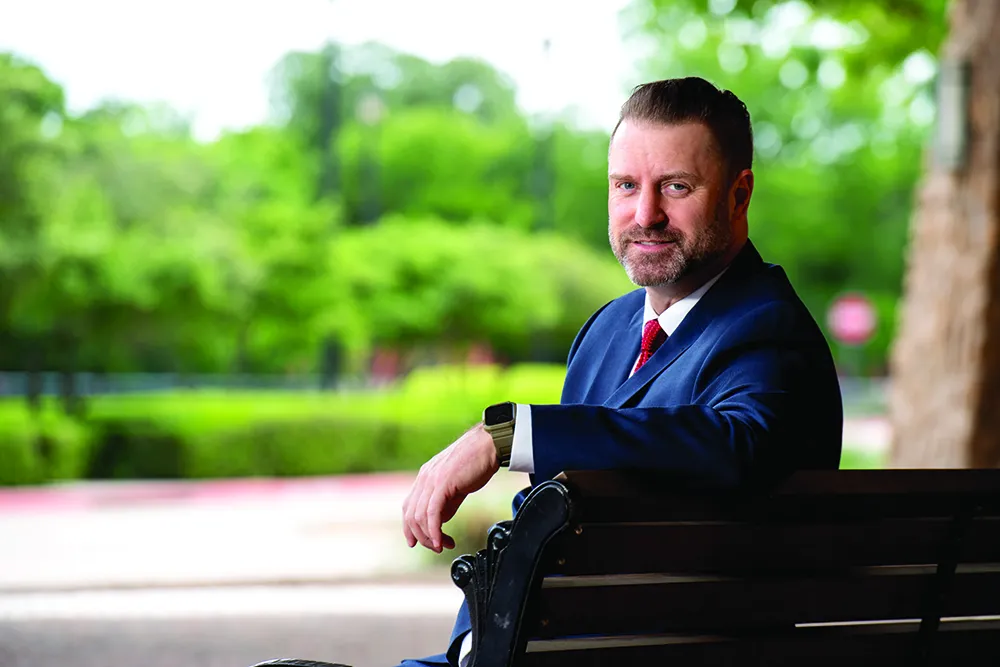The University of Michigan is creating the Mobility Transformation Center (MTC), in partnership with government and leading tech companies, as a means to test and develop the infrastructure and in-vehicle components to make autonomous vehicles a reality.
M City, the nickname for the MTC, is a mock city that allows developers to test a fully autonomous driving experience in a real-world environment. With completion scheduled for July, the 32-acre facility on U of M’s North Campus will include buildings,
March 27, 2015
Read time: 2 mins
The 5594 University of Michigan is creating the Mobility Transformation Center (MTC), in partnership with government and leading tech companies, as a means to test and develop the infrastructure and in-vehicle components to make autonomous vehicles a reality.
M City, the nickname for the MTC, is a mock city that allows developers to test a fully autonomous driving experience in a real-world environment. With completion scheduled for July, the 32-acre facility on U of M’s North Campus will include buildings, streets, highways, elevated roadways and complex intersections to create immersive simulations of on-road scenarios.
Brandmotion, a US supplier of technology solutions for the automotive aftermarket, has announced its participation in the initiative to further autonomous driving and vehicle-to-vehicle (V2V) communication. The company will provide logistical support and strategic input to facilitate development for both OEM and aftermarket applications. Brandmotion joins 26 partner companies as participants in the initiative, with a goal to have a viable autonomous network on the streets of southeast Michigan by 2021.
Brandmotion produces a series of driver safety systems and components that integrate with factory installed displays, wiring and fixtures. The company also invests in innovative products, such as its vehicle-specific wireless charging systems for phones, to allow drivers to benefit from new-car features in their current vehicles. As M City will incorporate a series of wireless transceivers, both in vehicles and on road fixtures such as light poles, that enable the communication from vehicle to vehicle and from vehicle to environment, Brandmotion will provide its expertise on the integration of in-vehicle components to work with existing displays, sensors and networked systems in the vehicle.
“If we are going to be living in a world where vehicles talk to other vehicles, the aftermarket will play a critical role,” said Jeff Varick, president and founder of Brandmotion. “Otherwise, it will take much longer to achieve any kind of critical mass, and that’s what V2V requires. We see it as a very exciting opportunity for our customers, to help drive the adoption rate, and we are very pleased to be able to contribute our unique knowledge of the aftermarket to the goals of the MTC.”
M City, the nickname for the MTC, is a mock city that allows developers to test a fully autonomous driving experience in a real-world environment. With completion scheduled for July, the 32-acre facility on U of M’s North Campus will include buildings, streets, highways, elevated roadways and complex intersections to create immersive simulations of on-road scenarios.
Brandmotion, a US supplier of technology solutions for the automotive aftermarket, has announced its participation in the initiative to further autonomous driving and vehicle-to-vehicle (V2V) communication. The company will provide logistical support and strategic input to facilitate development for both OEM and aftermarket applications. Brandmotion joins 26 partner companies as participants in the initiative, with a goal to have a viable autonomous network on the streets of southeast Michigan by 2021.
Brandmotion produces a series of driver safety systems and components that integrate with factory installed displays, wiring and fixtures. The company also invests in innovative products, such as its vehicle-specific wireless charging systems for phones, to allow drivers to benefit from new-car features in their current vehicles. As M City will incorporate a series of wireless transceivers, both in vehicles and on road fixtures such as light poles, that enable the communication from vehicle to vehicle and from vehicle to environment, Brandmotion will provide its expertise on the integration of in-vehicle components to work with existing displays, sensors and networked systems in the vehicle.
“If we are going to be living in a world where vehicles talk to other vehicles, the aftermarket will play a critical role,” said Jeff Varick, president and founder of Brandmotion. “Otherwise, it will take much longer to achieve any kind of critical mass, and that’s what V2V requires. We see it as a very exciting opportunity for our customers, to help drive the adoption rate, and we are very pleased to be able to contribute our unique knowledge of the aftermarket to the goals of the MTC.”








